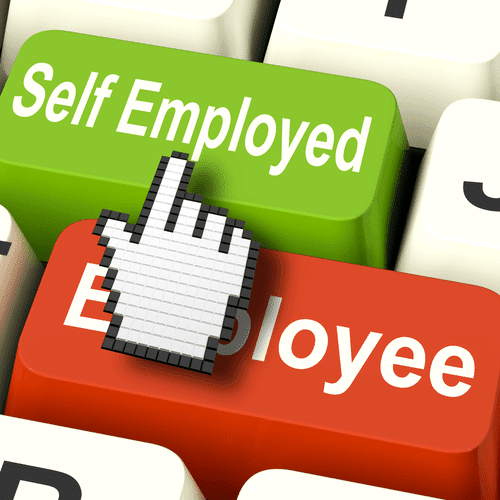
It even comes with some tables and worksheets to help you practice your accounting and bookkeeping. It was first published in 1976 but is in its 15th edition, so clearly Kamoroff’s advice has stood the test of time. You’ll need to have a basic understanding of how your financial statements (profit and loss statement, balance sheet, and statement of cash flows) work together to fully understand some of the later chapters. If you need a primer on this, check out the next two picks on our list for a more thorough breakdown of these accounting principles. Small business owners looking to tackle their bookkeeping work can find a selection of bookkeeping books that explain fundamental concepts and processes.
Step 3: Choose an accounting method: Cash or Accrual
Generally speaking, bookkeepers help collect and organize data and may have certain certifications to do so for your business. On the other hand, accountants are generally equipped with an accounting degree and may even be state-certified CPAs. You can expect most bookkeepers to maintain the general ledger and accounts while the accountant is there to create and interpret more complex financial bookkeeping statements. Part of a larger series called Financial Topics in 100 Pages or Less, this book gives a solid overview of accounting basics from generally accepted accounting principles (GAAP) to reading financial statements. If you run a sole proprietorship or some other type of small business, this book may contain all you need to know about bookkeeping and financial reporting.
Accounting software can be «right-sized» for your business
Same goes for expenses, which you record when you’re billed in the form of accounts payable. QuickBooks accounting software can help you ease into the accrual method of accounting by ensuring that your records are accurate, based on information from your credit card or payment apps. If you plan on growing your business in the future, you’ll probably want to get used to using this method. Keep in mind, single-entry bookkeeping’s simplicity doesn’t allow for GAAP conformation. This inability to conform to GAAP’s requirements may not apply to very small businesses which only need to be able to illustrate a method of meeting reporting requirements for taxes and employees.

Intermediate Accounting (Donald Kieso, Jerry Weygandt, and Terry Warfield)
They can’t do that without looking into things like revenue, cash flow, assets and liabilities, which they’ll search for on your balance sheet, income statement and statement of cash flows. Keeping an accurate, up-to-date set of books is the best way to keep track of tax deductions (expenses that you can deduct from your taxable income). Business accounting and reporting standards vary slightly from province to province, so it’s important that you find a bookkeeper that’s based in the same region where you’re operating your business. If your business incorporates brick-and-mortar sales with online sales, payroll will be different between the two.
- The specific amount of an emergency fund may depend on the size, scope, and operational costs of a given business.
- Online bookkeeping uses software that takes care of most of the calculations and data entry for you.
- Looking for an ultimate guide that you can reference time and time again?
- This book focuses on the beginner’s experience, so you won’t struggle to follow along.
- The authors break down the elements of financial reports into understandable parts, offering insights into how these numbers can guide business decisions.
- This book presents small-business accounting through the lens of running a children’s lemonade stand, under the premise that the two things are more synonymous than one might think.
Accounting software connects with your bank accounts
Each province in Canada has a different threshold for when a business owner is required to pay taxes by quarterly instalments, instead of as a lump sum at the end of the year. At the beginning of the year, take a look at the list of deductible expenses and determine which categories you’re most likely to spend money in. Consider creating a labelled file folder for each of these expense categories.
- Plus, the book offers valuable advice for setting up your accounting system wisely.
- We don’t guarantee that our suggestions will work best for each individual or business, so consider your unique needs when choosing products and services.
- As a beginner, you do not need to learn advanced accounting concepts and methods that are used by professionals working on large-scale projects.
- Fast learners will like this book, since it is information-dense and logically arranged, allowing readers to get started with the basics in no time.
Benefits of Accounting Software for Business
Sage 50 Accounting—also sometimes known as Sage accounting or Sage business cloud accounting—is a massive small business accounting application that’s designed for desktop use. It’s the most comprehensive accounting program we review, and it does more than what many small businesses need. The software offers built-in online connections that support some remote work since it integrates with Microsoft 365 Business. Though it has a dated interface, doesn’t have a mobile app, and requires you to install the software on a desktop or laptop computer, Sage 50 Accounting is still a powerful piece of software.
The double entry method leaves less room for error, making it the better choice for balancing complex books. With the help of cloud accounting software for small-business bookkeeping, you can pretty much automate the process. It’s also possible to link your cloud accounting software to other financial programs that your business uses, like your online banking or mobile payment apps. With all your software linked through the cloud, payments that you make and receive can be automatically recorded to a digital ledger.

Keep Personal and Business Costs Separate
Most of the best accounting software programs will help you track your business income and business expenses automatically without you having to create spreadsheets and do manual data entry. But most small business owners should consider getting accounting software. Stop suffering and start saving time (and money) during tax season and throughout the year. And even if you, like me, love your spreadsheets and feel like you’ve got a good system in place? QuickBooks Online is one of the most popular bookkeeping software choices in the US.

Knowledge is power when you’re an entrepreneur, and always striving to know more and learn from others will bring your business closer to success. If you’re nervous about setting up accounting software for the first time, Kashoo’s experts can talk you through it. So while Kashoo isn’t as comprehensive as competitors like QuickBooks, Xero, and FreshBooks, its customer service reputation is a definite point in its favor. Unfortunately, even though QuickBooks Online is our top pick, it’s also our priciest one. The cheapest QuickBooks plan starts at $30 a month—higher than any of our other recommended bookkeeping solutions.


